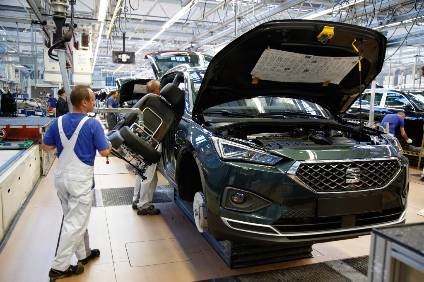Many automakers are temporarily shutting down their manufacturing plants in Europe in response to the COVID-19 coronavirus crisis. What’s going on?
There are two main drivers at work and it is interesting to note that the OEMs are all acting on this currently and they have all acted with speed. As we saw in 2008/9, the writing on the wall is there very quickly to take this course of action and there is no point in delaying.
The COVID-19 crisis is impacting car companies in two major ways. Firstly, supply chains are being disrupted as critical parts enter short supply. This first emerged with China sourcing but has now spread to include supplier plants in Europe also experiencing disruption. Secondly – and even more seriously – demand for new cars is drying up in major markets as consumers face considerable uncertainty over the economic outlook and grapple with new priorities in their daily lives. The March sales numbers are going to make for grim reading across the region. While there is some inertia support for sales such as orders to fleets that were already baked in, private sales will have fallen off a cliff. Dealerships are not exactly busy with footfall or leads. Don’t be surprised to see the European car market down by a large number in March – perhaps as much as 40%. The hope has to be that the situation stabilises thereafter.
A further complicating factor is the direct impact of the public health crisis on factory workers themselves. So-called ‘social distancing’ measures that impact the size of gatherings and worker proximity to each other also come into play. Some workers can work at home, but for others that is not an option. Even if a plant stays open, absenteeism will make it difficult to keep going.
For car companies, the operational costs involved in running manufacturing plants are very large indeed. The management accountants are happy if there is sufficient volume to spread overheads and keep costs per unit produced down. If demand drops off in normal circumstances, they can tweak shift schedules to bring supply into line with a lower rate of sales, keep inventory under control. However, in response to a large and sudden loss of demand across the product board, with rates of manufacturing plant capacity utilisation significantly below 50%, they will opt for a more radical course of action – temporary plant shutdowns.
The shutdowns will put a lid on costs and eventually enable stock reduction when demand picks up, avoiding the problems that come with swollen inventory. Plant managers across all original equipment manufacturers (OEMs) will be closely monitoring order banks and stock levels over the coming weeks. They will want to ensure that they can supply the market with fresh product as soon as demand picks up, but resumptions to production will only come when market conditions allow.
Much depends on how economies react to the crisis over the next few weeks and also whether government actions and support in response to the crisis can restore already damaged consumer and business confidence.







